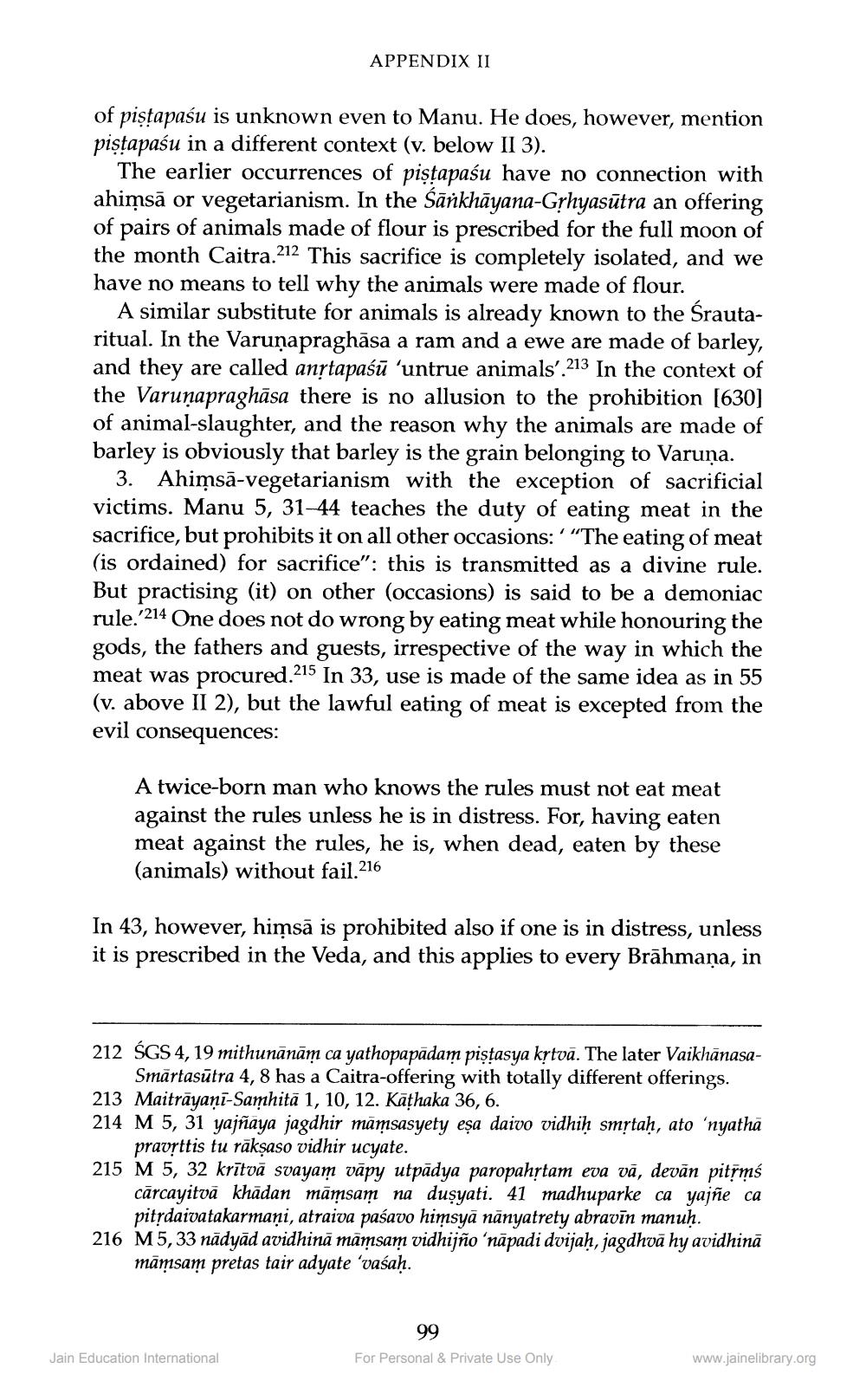________________
APPENDIX II
of piştapasu is unknown even to Manu. He does, however, mention pistapaśu in a different context (v. below II 3).
The earlier occurrences of piştapaśu have no connection with ahimsā or vegetarianism. In the Sārkhāyana-Grhyasūtra an offering of pairs of animals made of flour is prescribed for the full moon of the month Caitra.212 This sacrifice is completely isolated, and we have no means to tell why the animals were made of flour.
A similar substitute for animals is already known to the Srautaritual. In the Varuņapraghāsa a ram and a ewe are made of barley, and they are called anţtapaśū ‘untrue animals'.213 In the context of the Varuņapraghāsa there is no allusion to the prohibition (630) of animal-slaughter, and the reason why the animals are made of barley is obviously that barley is the grain belonging to Varuņa.
3. Ahimsā-vegetarianism with the exception of sacrificial victims. Manu 5, 31-44 teaches the duty of eating meat in the sacrifice, but prohibits it on all other occasions: ' "The eating of meat (is ordained) for sacrifice": this is transmitted as a divine rule. But practising (it) on other (occasions) is said to be a demoniac rule.'214 One does not do wrong by eating meat while honouring the gods, the fathers and guests, irrespective of the way in which the meat was procured.215 In 33, use is made of the same idea as in 55 (v. above II 2), but the lawful eating of meat is excepted from the evil consequences:
A twice-born man who knows the rules must not eat meat against the rules unless he is in distress. For, having eaten meat against the rules, he is, when dead, eaten by these (animals) without fail.216
In 43, however, himsā is prohibited also if one is in distress, unless it is prescribed in the Veda, and this applies to every Brāhmaṇa, in
212 SGS 4, 19 mithunānām ca yathopapādam pistasya krtvā. The later Vaikhānasa
Smārtasūtra 4,8 has a Caitra-offering with totally different offerings. 213 Maitrāyaṇi-Samhitā 1, 10, 12. Kāțhaka 36, 6. 214 M 5, 31 yajñaya jagdhir māmsasyety eşa daivo vidhiḥ smrtaḥ, ato 'nyatha
pravrttis tu rākşaso vidhir ucyate. 215 M 5, 32 krītvā svayam vāpy utpadya paropahrtam eva vā, devān pitymś
cārcayitvä khādan māmsam na duşyati. 41 madhuparke ca yajñe ca
pitrdaivatakarmaņi, atraiva pašavo himsyā nānyatrety abravīn manuḥ. 216 M5,33 nädyād avidhinā māņsam vidhijño 'nāpadi dvijah, jagdhvā hy avidhinā
māmsam pretas tair adyate 'vaśaḥ.
99
Jain Education International
For Personal & Private Use Only
www.jainelibrary.org




